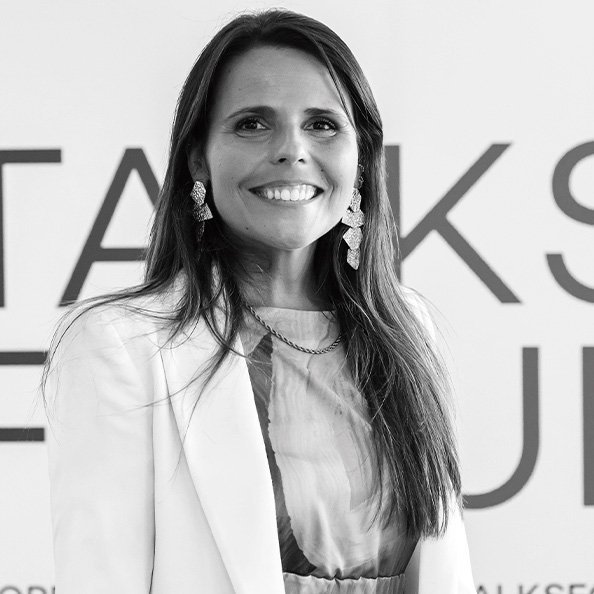
Concerning Portuguese women
António Rebelo de Sousa

Ser mulher: ser perfeita com o melhor das imperfeições
Ana Baleizão
The role of women in luxury
Mónica Seabra-Mendes
Luxury management specialist

Traditionally, luxury has developed in peaceful,
economically developed and feminine societies. Women have always been the
driving force behind the development of luxury, whether as clients, as
prescribers and influencers, or as the end recipients of many exceptional
objects. Luxury, I would say, is a feminine universe.
On the other side of the spectrum, with brands and businesses, luxury is, however, made by men. In the creative arena, we can still identify a handful of important female names, most of whom belong to brands bearing the same name, but in the area of business management, we need few more than the fingers of one hand to identify prominent women.
In creative direction, we can identify the pioneers Gabrielle Chanel, Elsa Schiaparelli, Jeanne Lanvin, Nina Ricci, Estée Lauder, Helena Rubinstein and Madeleine Vionnet, among others. Those who followed were Diane von Fürstenberg, Vivienne Westwood, Carolina Herrera, Sonia Rykiel, Donna Karan and Miuccia Prada, and the most recent ones, Victoria Beckham and Stella McCartney, among others. There are also women in creative director roles at well-known brands, such as Phoebe Philo, Sarah Burton and Maria Grazia Chiuri, the most prominent of them all, for being in charge of the creative direction of one of the most important luxury brands in the world, DIOR, and for being the first woman in 78 years to occupy this position in the brand.
On the other side of the spectrum, with brands and businesses, luxury is, however, made by men. In the creative arena, we can still identify a handful of important female names, most of whom belong to brands bearing the same name, but in the area of business management, we need few more than the fingers of one hand to identify prominent women.
In creative direction, we can identify the pioneers Gabrielle Chanel, Elsa Schiaparelli, Jeanne Lanvin, Nina Ricci, Estée Lauder, Helena Rubinstein and Madeleine Vionnet, among others. Those who followed were Diane von Fürstenberg, Vivienne Westwood, Carolina Herrera, Sonia Rykiel, Donna Karan and Miuccia Prada, and the most recent ones, Victoria Beckham and Stella McCartney, among others. There are also women in creative director roles at well-known brands, such as Phoebe Philo, Sarah Burton and Maria Grazia Chiuri, the most prominent of them all, for being in charge of the creative direction of one of the most important luxury brands in the world, DIOR, and for being the first woman in 78 years to occupy this position in the brand.
In business leadership, I would highlight two female
exceptions at Burberry: Rosa Bravo and Angela Ahrendts. Both have brilliantly
helped to reposition and renew the brand, giving it back its historical
prominence. In the past, we can also recall the role of Wanda Ferragamo, who
took over the Ferragamo brand after her husband’s sudden death, and the
pioneering role of Natalie Massenet, founder of the online luxury sales
platform | Net à Porter. At traditional Chanel, I would highlight the last two
female leaders, Maureen Chiquet, who led the brand for nine years, and the most
recent acquisition, Indian Leena Nair, who replaced Maureen. The trend of
bringing women into the leadership of luxury brands seems to be strengthening,
however, with the hiring of Isabelle Guichot to lead Balenciaga and Ilaria
Resta to head haute horlogerie brand Audemars Piguet.
Although the leaders of the luxury conglomerates Bernard Arnault and François Pinault have publicly affirmed the objective and need to strengthen female leadership in their structures, the reality is that in luxury – an eminently feminine universe –, women are above all objects and not subjects. Subject of creativity, subject of leadership and subject of change.
Although the leaders of the luxury conglomerates Bernard Arnault and François Pinault have publicly affirmed the objective and need to strengthen female leadership in their structures, the reality is that in luxury – an eminently feminine universe –, women are above all objects and not subjects. Subject of creativity, subject of leadership and subject of change.





